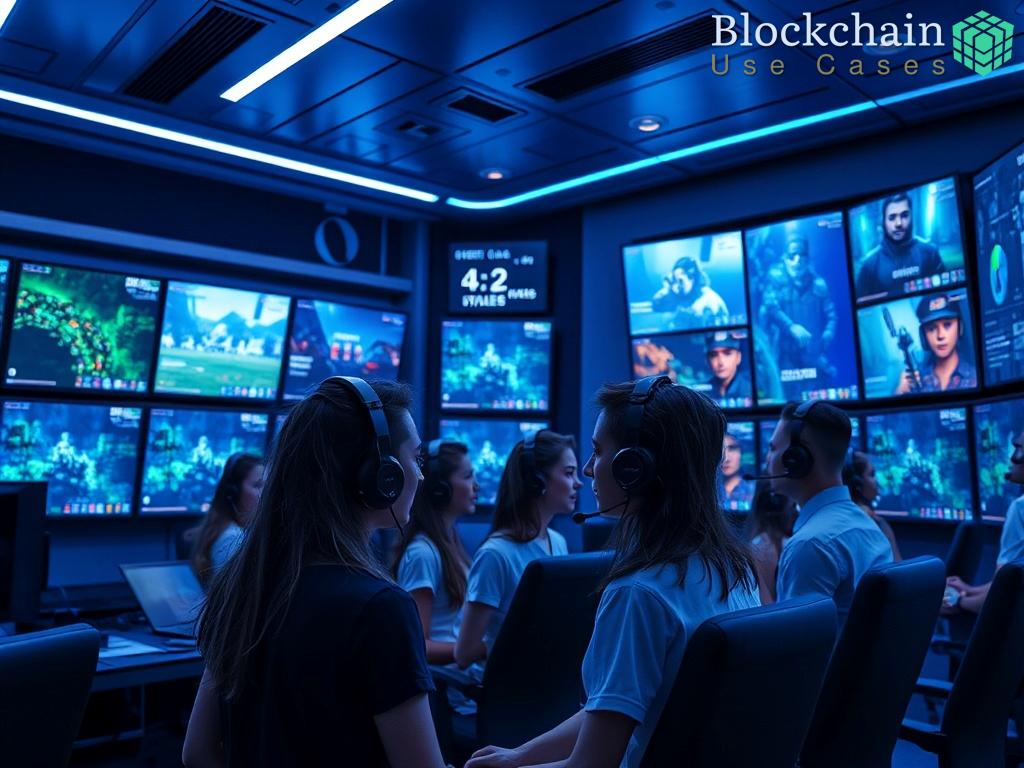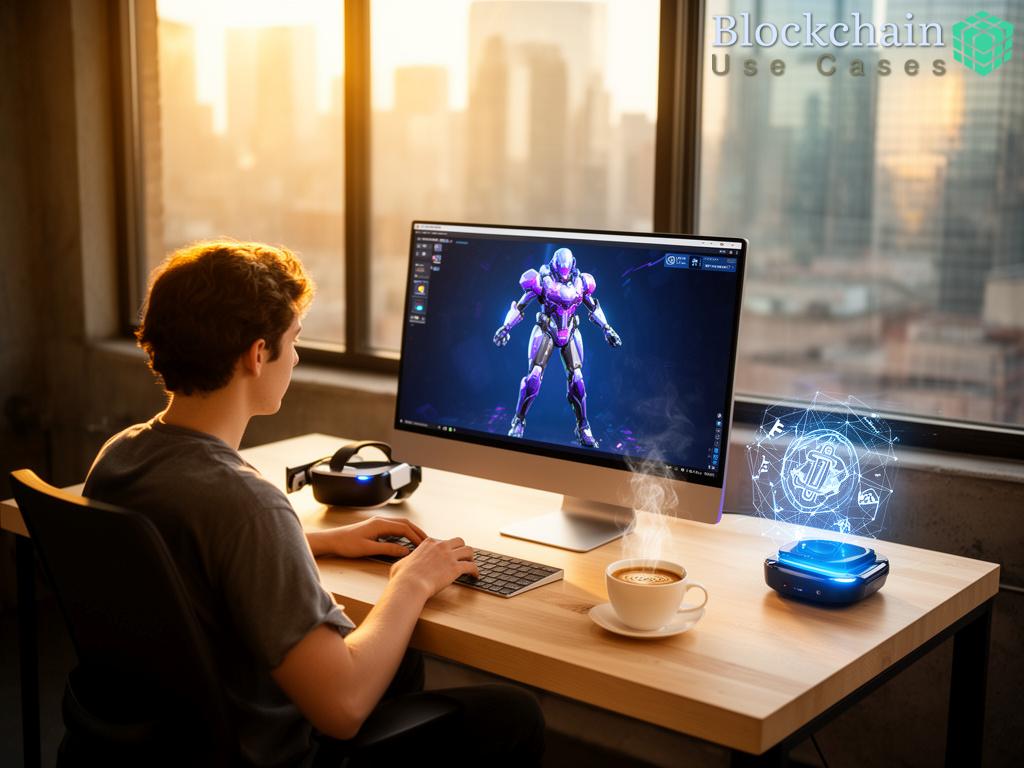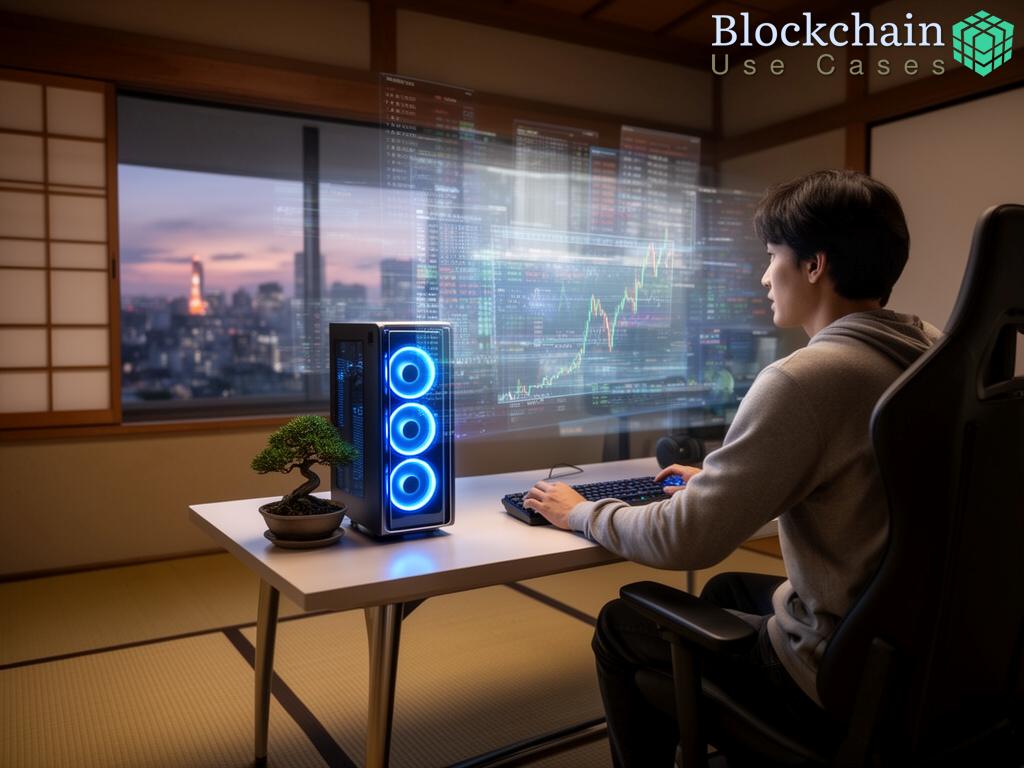Overview of Smart Contracts in Gaming
Revolutionizing Game Interactions with Smart Contracts
As the gaming industry continues to evolve, the integration of blockchain technology has emerged as a game-changer, particularly through the implementation of smart contracts. These self-executing contracts with the terms of the agreement directly written into code are redefining how players interact within gaming communities. By eliminating the need for intermediaries, smart contracts streamline processes, enhance transparency, and foster trust among players.
Key Benefits of Smart Contracts in Gaming
The potential benefits of smart contracts in the gaming ecosystem are vast, impacting everything from transaction efficiency to content moderation. Below is a detailed overview of the key advantages:
- Transparency: All transactions and rules are recorded on the blockchain, ensuring that players can verify actions and outcomes.
- Security: With cryptographic methods securing contracts, the risk of fraud is significantly reduced.
- Automation: Smart contracts execute automatically when conditions are met, facilitating quicker transactions and reducing administrative overhead.
- Decentralization: Removing central authorities means that players have more control and ownership over their digital assets.
- Cost Efficiency: By eliminating intermediaries, players can save on transaction fees and enjoy a quicker payout process.
Potential Challenges and Considerations
While the benefits of smart contracts in gaming are compelling, several challenges must be addressed to ensure a successful implementation. Issues such as code vulnerabilities, regulatory uncertainty, and the need for user education on blockchain technology can pose obstacles. Developers and gaming companies must work collaboratively to create a secure and accessible environment for all users to fully leverage the advantages smart contracts offer.
Mechanisms for Automated Content Moderation
As gaming communities expand globally, the necessity for effective content moderation has never been more critical. Traditional moderation methods often struggle to keep pace with the rapid influx of user-generated content, leading to potential toxicity and a negative gaming experience. However, the advent of smart contract technology presents a unique solution to this pressing issue. By embedding moderation rules directly into the code, gaming platforms can establish a more resilient and transparent framework for managing community interactions.
Leveraging Blockchain for Real-Time Moderation
One of the most innovative mechanisms for automated content moderation involves utilizing blockchain’s decentralized ledger capabilities. By recording all interactions on a public ledger, developers can create a system where moderation actions are not only transparent but also tamper-proof. This approach allows for real-time tracking of user behavior, enabling immediate responses to violations of community guidelines. For instance, if a player reports abusive language, a smart contract could automatically evaluate the severity of the offense based on pre-defined criteria and execute moderation actions without the need for human intervention.
AI-Powered Content Analysis
Incorporating artificial intelligence alongside smart contracts can significantly enhance content moderation efforts. AI algorithms can analyze user interactions and identify patterns indicative of harmful behavior, such as harassment or hate speech. Once flagged, the smart contract can initiate actions ranging from temporary muting of offending users to permanent bans based on the severity and frequency of infractions. This synergy between AI and smart contracts not only improves the efficiency of moderation processes but also fosters a safer gaming environment by ensuring consistent enforcement of community standards.
Community-Driven Governance Models
Furthermore, implementing community-driven governance models through smart contracts enhances user participation in the moderation process. Players can vote on proposed changes to moderation policies or appeal decisions made by automated systems, reinforcing a sense of ownership and responsibility within the community. This democratic approach encourages players to adhere to community guidelines, knowing they have a say in how those guidelines are enforced. As a result, such systems can cultivate a positive atmosphere that promotes respectful interactions and mutual respect among players.
In summary, the integration of smart contracts with advanced technologies such as AI represents a transformative shift in how gaming communities approach content moderation. By harnessing the strengths of both decentralized technology and intelligent algorithms, developers can create robust systems that not only mitigate toxic behavior but also empower users to play an active role in shaping their gaming experiences.
Benefits of Decentralized Moderation Systems
The introduction of decentralized moderation systems in gaming communities, facilitated by smart contracts, marks a significant advancement in how players engage with one another. As traditional moderation methods often struggle with scalability and efficiency, decentralized approaches leverage blockchain technology to create more resilient and adaptive frameworks. This shift not only enhances the user experience but also sets a new standard for community interactions in gaming.
Enhanced User Empowerment
One of the most compelling advantages of decentralized moderation is the empowerment of users. Unlike centralized systems where decisions are made by a select few, decentralized models allow for collective input from the entire community. This participatory approach encourages players to take an active role in maintaining the integrity of their gaming environments.
Increased Transparency and Trust
Transparency is a critical concern in online gaming, especially when it comes to moderation practices. Decentralized systems, underpinned by blockchain technology, ensure that every action taken—be it a ban, mute, or warning—is recorded on an immutable ledger. Players can view these records, fostering a greater sense of trust in the moderation process.
List of Key Benefits of Decentralized Moderation Systems:
- Community Engagement: Players contribute to rule-setting and moderation policies.
- Accountability: All moderation actions are publicly visible, reducing bias.
- Efficiency: Automated processes minimize delays in response to violations.
- Adaptability: Rules can be swiftly adjusted based on community feedback.
- Reduced Central Authority Risk: Less reliance on a single entity mitigates the risk of abuse or corruption.
Reduction of Bias and Abuse
In conventional moderation systems, biases can inadvertently influence decisions, leading to inconsistent enforcement of rules. However, decentralized moderation minimizes this risk through automated decision-making processes governed by smart contracts. These contracts apply uniform standards to all players, ensuring that moderation is executed fairly and impartially.
In summary, the transition to decentralized moderation systems within gaming communities not only enhances user experiences but also establishes a more equitable environment. By leveraging the principles of transparency, community engagement, and automation, developers can cultivate a gaming culture that values respect and collaborative governance.
Challenges and Limitations of Smart Contract Solutions
While the integration of smart contracts into automated content moderation systems presents numerous advantages, several challenges and limitations must be addressed to ensure their successful implementation. As the gaming community continues to evolve, understanding these obstacles is crucial for developers, players, and stakeholders alike. This section delves into the complexities associated with smart contract solutions in the realm of gaming and highlights potential pitfalls that could hinder their effectiveness.
Technical Limitations and Code Vulnerabilities
At the core of smart contracts lies the code that dictates their functionality. These self-executing contracts are only as reliable as the code they are built upon, which opens the door to various technical limitations. Code vulnerabilities can lead to unintended consequences, such as exploits that could compromise the integrity of moderation actions. Furthermore, once deployed, smart contracts are immutable, making it challenging to rectify errors or adapt to new regulatory requirements. This rigidity poses a significant challenge, as developers must ensure that their code is foolproof before deployment.
Regulatory and Compliance Concerns
The regulatory landscape surrounding blockchain technology and smart contracts is still developing, creating an environment of uncertainty. Gaming companies must navigate a complex web of laws that can vary significantly by region, often leading to compliance challenges. For instance, what may be permissible in one jurisdiction could be illegal in another, complicating the moderation process and risking potential legal repercussions for developers. Establishing a framework that adheres to diverse regulatory requirements while maintaining the principles of decentralization is a daunting task.
User Experience and Accessibility Issues
The implementation of smart contracts in gaming moderation also raises concerns regarding user experience and accessibility. Many players may lack the technical knowledge required to understand how smart contracts function, resulting in frustration and disengagement. Additionally, the complexity of navigating blockchain networks can deter players unfamiliar with digital currencies and decentralized systems. To foster a successful gaming environment, developers must invest in user education and create intuitive interfaces that bridge the gap between technology and player engagement.
To summarize, while smart contract-based automated content moderation systems hold the potential to transform gaming communities, they are not without their challenges. From technical limitations and regulatory uncertainties to user experience hurdles, developers must proactively address these issues to leverage the full benefits of smart contracts in gaming.
Future Trends in Automated Moderation Technologies
The trajectory of automated moderation technologies in gaming communities is poised for significant evolution, driven by advancements in artificial intelligence, machine learning, and blockchain capabilities. As developers work to refine these systems, the integration of smart contracts is emerging as a cornerstone for creating more responsive, transparent, and user-centric moderation frameworks. The future of automated moderation will likely see a convergence of these technologies, enhancing the gaming experience while ensuring a safer environment for players.
Expanding the Role of AI and Machine Learning
In the coming years, the role of artificial intelligence and machine learning in automated moderation will become increasingly sophisticated. These technologies will not only identify harmful behaviors but also learn from community interactions to refine their detection algorithms. By leveraging vast datasets of player behavior, AI systems can anticipate potential violations before they escalate, enabling preemptive moderation actions. This proactive approach will be pivotal in maintaining a healthy gaming atmosphere, reducing reliance on reactive measures that often come too late.
Integration of User Feedback Mechanisms
Another trend on the horizon is the incorporation of user feedback mechanisms into moderation systems. As players become more engaged in the moderation process, their insights will be invaluable in shaping community standards. Automated systems will evolve to include feedback loops, allowing players to contribute to discussions about moderation policies and their implementation. This participatory model will not only enhance user satisfaction but will also foster a greater sense of ownership over the gaming environment, ultimately leading to more respectful interactions.
Enhanced Interoperability Across Platforms
The future of automated moderation technologies will also be characterized by a significant push towards interoperability across gaming platforms. As the gaming landscape becomes more interconnected, smart contracts will facilitate seamless moderation practices that span multiple games and communities. This interoperability will enable consistent enforcement of community guidelines, regardless of the platform, ensuring that players experience uniform standards of behavior no matter where they engage. Additionally, cross-platform data sharing will empower moderation systems to adapt and respond to evolving player dynamics, creating a more cohesive gaming experience.





